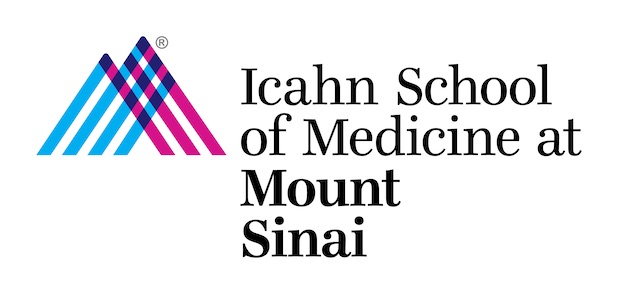Course 11: Advanced Conversions and Opioid Side Effects
What You’ll Learn
- Convert to a single opioid when patients are on multiple opioids and/or multiple routes of delivery
- Recognize the signs and symptoms of opioid ineffectiveness or toxicities
- Manage opioid toxicities and side effects, including how to discontinue opioid therapy via safe tapering over time
- Utilize equianalgesic conversion tables for safe opioid rotation
What You’ll Earn
Only CAPC members who are logged in can earn the following free Continuing Education Credits:
- 1.00 AMA PRA Category 1 Credit(s)™
- Nursing: 1.25 CNE, 1.00 Pharmacotherapy
To take this course, log in. Or, check here to see if your organization is a member.
LoginTake the course
Take the post-test
Complete evaluation
Download your certificate
Tools & Resources
Case examples used in the CAPC curriculum to illustrate pain management techniques.
Course citations. Center to Advance Palliative Care, 2015.
Depicts the relative potencies of commonly prescribed opioids compared to oral morphine.
List of available opioid strengths and formulations.
Opioid pocket reference for providers including safe starting doses, equianalgesic chart, and standard dosing strengths.
Sample protocol for managing constipation. Organizations can create similar protocols in collaboration with referring clinicians and pharmacists.
Key terms related to pain and pain management. Center to Advance Palliative Care, 2015.
When to use - and when to avoid - 6 classes of analgesics including acetaminophen, NSAIDs, opioids, antiepileptics, antidepressants, and corticosteroids.
Course Directors
Accreditations and Disclosures
Physicians
The Icahn School of Medicine at Mount Sinai is accredited by the Accreditation Council for Continuing Medical Education (ACCME) to provide continuing medical education for physicians.
Icahn School of Medicine at Mount Sinai designates this enduring material for a maximum of 1.0 AMA PRA Category 1 Credit™. Physicians should claim only the credit commensurate with the extent of their participation in the activity
CME Released: 2/15/2024; Valid for credit through 2/15/2026
Estimated Time of Completion for CME: 60 minutes
ABIM MOC Recognition Statement
Successful completion of this CME activity, which includes participation in the evaluation component, enables the participant to earn 1.0 MOC credit in the American Board of Internal Medicine's (ABIM) Maintenance of Certification (MOC) program. Participants will earn MOC credits equivalent to the amount of CME credits claimed for this activity. It is the CME activity provider's responsibility to submit participant completion information to ACCME for the purpose of granting ABIM MOC credit.
Physician Assistants
The American Academy of Physician Assistants (AAPA) accepts credit from organizations accredited by the ACCME. Icahn School of Medicine at Mount Sinai designates this enduring material with 1.0 AMA PRA Category 1 Credit™ as specified, which can be applied to the continuing education of Physician Assistants. Physician Assistants should claim only the credit commensurate with the extent of their participation in the activity.
Nurses (Registered Nurses, Advanced Practice Registered Nurses, Licensed Nurses)
This nursing continuing professional development activity was approved by Connecticut Nurses' Association, an accredited approver by the American Nurses Credentialing Center's Commission on Accreditation.
CNE Released: 10/10/2024; Valid for credit through 10/10/2026
Estimated Time of Completion / CNE Contact Hours: 70 minutes / Contact Hours 1.25
This course offers 1.0 Pharmacotherapeutic Contact Hours for Advanced Practice Registered Nurses as required for maintenance of national certification by the American Nurses Credentialing Center (ANCC) and the American Association of Nurse Practitioners (AANP) for nurse practitioners and clinical nurse specialists.
Social Workers
This activity has not been awarded contact hours for social workers. Social workers will receive a verification of attendance certificate upon course completion.
Certified Case Managers
This activity has not been awarded contact hours for certified case managers. Case managers will receive a verification of attendance certificate upon course completion.
Verification of Attendance (VOA)
All users that are not eligible for continuing education will receive a Verification of Attendance certificate upon completion of the course.
Faculty Disclosure Policy
It is the policy of Icahn School of Medicine at Mount Sinai (ISMMS) to ensure objectivity, balance, independence, transparency, and scientific rigor in all CME-accredited educational activities. All faculty participating in the planning or implementation of an activity accredited by ISMMS are expected to disclose all of their financial relationships with ineligible companies existing within the prior 24 months. All relevant financial relationships have been mitigated and disclosed to learners before the activity takes place. Presenters must also make a meaningful disclosure to the audience of their discussion of unlabeled or unapproved drugs or devices. This information will be available as part of the course material.
None of the individuals in control of content have relevant financial relationships to disclose. All relevant financial relationships have been mitigated.
Course Media Instructions
Software Requirements: CAPC’s online curriculum, tools and technical assistance are designed to be fully compatible through multiple platforms: computer, smartphone (iOS or Android) or tablet running the following web browsers: Google Chrome, Mozilla Firefox, Safari, and Microsoft Edge.
Content: Each course is comprised of interactive learning components (articles, tools, or supporting materials), video and audio. The learner will be expected to complete various interactive processes such as matching, simulated clinical decision-making, fill in the blanks, and highlighting content.
To successfully earn credit, participants must complete the activity online, receive a minimum score of 80% on the post-test, and complete the course evaluation. A printable certificate of completion or a continuing award document specific to the discipline will be awarded.
Target Audience: Each program is developed for chaplains/spiritual counselors, nurses, physicians, physician assistants, social workers, case managers, palliative care program leaders, and healthcare leaders (hospital, health system and community care).
Activity Description/Statement of Needs: CAPC’s online curriculum provides training in two critical areas. Technical assistance courses are designed to help palliative care program leaders address key challenges such as implementing palliative care in community health care settings. Clinical coursework provides fundamental training in pain and symptom management, communication, and other key skills needed to work with patients with serious illness.
Disclaimers: The opinions expressed in the courses are those of the authors and do not necessarily represent the views of the sponsor, the educational partner, or the supporter. Please review complete prescribing information of specific drugs or combination of drugs, including indications, contraindications, warnings, and adverse effects before administering pharmacologic therapy to patients.
Activities do not contain information on commercial products/devices that are unlabeled for use or investigational uses of products not yet approved.
Copyright Information: All rights reserved by the Center to Advance Palliative Care (CAPC). No materials may be used or reproduced in any manner whatsoever without written permission except in the case of brief quotations embodied in articles or reviews.
Privacy Information: To read CAPC’s privacy policy, click here.
Course Faculty
Melissa Bakar, MD. Weill Cornell Medicine.
Jaime Goldberg, MSW, LCSW, ACHP-SW. PhD student, University of Wisconsin-Madison School of Social Work.
Mary Lynn McPherson, PharmD, BCPS, CDE. Professor and Executive Director, Advanced Post-Graduate Education in Palliative Care, University of Maryland School of Pharmacy.
Lolita Melhado, MSN, ARNP, FNP-BC. Family Nurse Practitioner/Palliative Care, Gulf Coast Medical Center - Lee Memorial Health System.
Peer Reviewers
Sherika S. Newman, DO. Hospice & Palliative Medicine, Family Medicine Piedmont Healthcare.*
Karl Bezak, MD. Clinical Assistant Professor of Medicine, Palliative Care and Medical Ethics, University of Pittsburg (UPMC).*
Sivan Ben-Moshe, MD. Fellow, Geriatrics and Palliative Medicine, Icahn School of Medicine at Mount Sinai.
Sachin Kale, MD. Fellow, Geriatrics and Palliative Medicine, Icahn School of Medicine at Mount Sinai.
Katie Wang, MD. Fellow, Geriatrics and Palliative Medicine, Icahn School of Medicine at Mount Sinai.
*indicates ABIM Peer Reviewer
Contact information: For answers to frequently asked questions about CAPC courses and CEs, read the Online Course FAQ. For all other questions, please contact support.

Provided by the Icahn School of Medicine at Mount Sinai.
Course 1 of 14
Conducting a comprehensive pain assessment to guide safe and effective treatment.
Course 2 of 14
Selecting a safe and appropriate analgesic for patients with serious illness based on the pain assessment.
Course 3 of 14
Patient and family factors that influence prescribing decisions for patients with serious illness.


